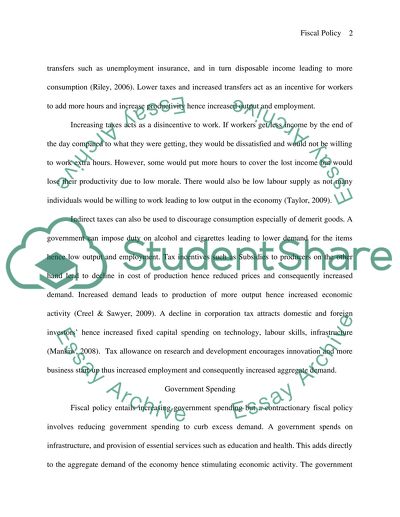Cite this document
(“Fiscal Policy Essay Example | Topics and Well Written Essays - 1000 words”, n.d.)
Retrieved from https://studentshare.org/macro-microeconomics/1428692-how-does-fiscal-policy-influence-the-economydoes
Retrieved from https://studentshare.org/macro-microeconomics/1428692-how-does-fiscal-policy-influence-the-economydoes
(Fiscal Policy Essay Example | Topics and Well Written Essays - 1000 Words)
https://studentshare.org/macro-microeconomics/1428692-how-does-fiscal-policy-influence-the-economydoes.
https://studentshare.org/macro-microeconomics/1428692-how-does-fiscal-policy-influence-the-economydoes.
“Fiscal Policy Essay Example | Topics and Well Written Essays - 1000 Words”, n.d. https://studentshare.org/macro-microeconomics/1428692-how-does-fiscal-policy-influence-the-economydoes.


